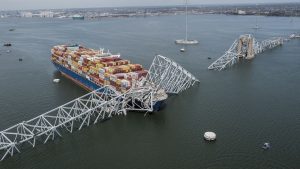Climate Change Barrels Ahead … To Our Own Detriment

By Yousaf K
The greatest existential threat to our planet is climate change. The consequences of not controlling greenhouse emissions include the collapse of crop and fishery, residencies becoming uninhabitable, and species disappearing in droves. These disasters, however, may still be preventable. From supercharged storms and extensive wildfires, its wrath can be witnessed today, right in front of our own eyes.
The world is primarily focused on understanding the impacts, that can help us formulate policies to control what has yet to come, what can be stoppable, as well as what is here, so that species and communities can be protected. Though everyone is at risk of being affected by the climate change, those living in the under-developed and the developing world, who have contributed least to the problem of the climate change, are the most vulnerable. These populations have little financial resources to cope against the crises, even as they look towards the developed world to finance food, shelter, and education. Additionally, researchers have pinpointed a connection between rising inequalities and climate change, hence there must be unanimous efforts from the decision makers to combat both simultaneously.
Weather
A rise in global temperatures force widespread shifts in weather systems. The result is greater frequency and intensity in events like floods, hurricanes, and droughts. In the times of our ancestors, extreme weather events would occur once in their lifetimes, however, these are becoming more frequent in ours. Since the preindustrial era almost 250 years ago, the planet has warmed 1.1 degrees Celsius, and scientists are concerned it could reach an alarming 4 degrees Celsius in 2100 if we fail to control the burning of fossil fuels.
Environment
Climate change is disrupting the ecosystems from poles to the tropics. A minor shift in temperature causes dramatic changes in the Earth’s environment. Such effects are mostly apparent in the coldest regions of poles. Studies show that the Arctic is warming up twice as fast as other regions of the world, leading to the melting of ice sheets and glaciers. If the same pace of climate change continues, the Arctic could be entirely ice-free in the summer seasons.
Economy
As per the National Climate Assessment 2018 report, the U.S. economy alone will cost $500 billion per annum due to climate change in few decades. These are other than the costs to human health disasters. Local industries, commercial fishing, tourism, agriculture, and infrastructure are all at the risk of collapsing.
Humans
Global warming shakes the very fabric of the society, leading to war, displacement, famine, disease, and death. For many, this unfortunate prospect is already in their lives. As such, climate change poses an existential threat to the human life.








